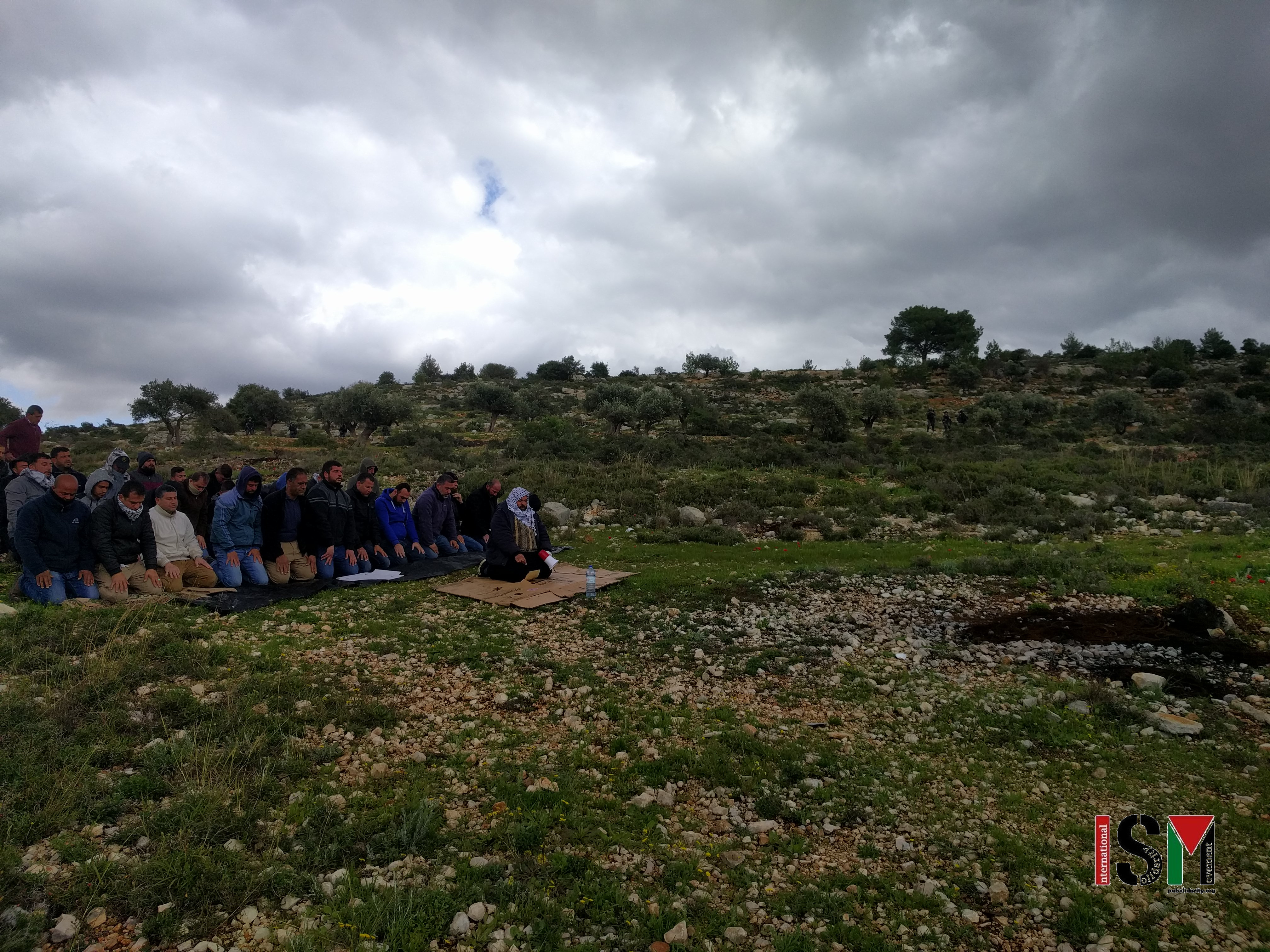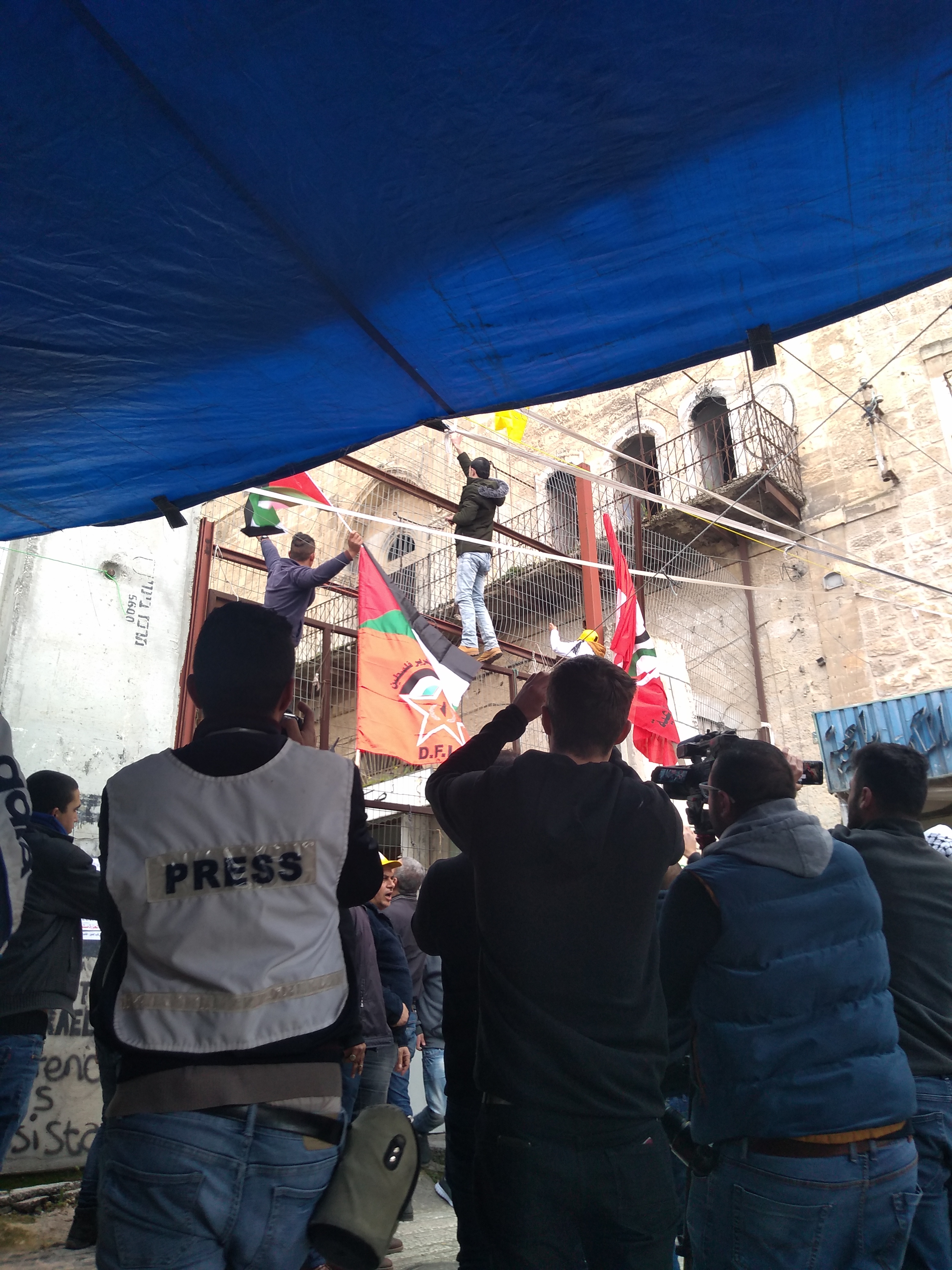-
Palestinians in prayer shot with rubber-coated steel bullets, tear gas.
March 01, 2019 | International Solidarity Movement, Al-Khalil team | Ramallah, occupied Palestine Non-violent peaceful protesters met with tear gas and rubber-coated steel bullets in Ras Karkar. In 2018, settlers invaded land atop al-Risan Mountain, which overlooks the three villages Ras Karkar, Kafr Ni’ma and Kharbatha Bani Harith. Since then local Palestinians have gathered in […]
-
On beauty in Al-Khalil
February 2019 | International Solidarity Movement, Al-Khalil team | Hebron, occupied Palestine I have spent about 30 days in Al-Khalil this year. A short stay by ISM standards, and nothing compared to the tens of thousands of people who call this place home. Despite this, I already feel that the city has got under my […]
-
Press targeted during peaceful protest in Al-Khalil
February 22, 2019 | International Solidarity Movement, Al-Khalil team | Al-Khalil, occupied Palestine ISM and members of the press targeted and attacked with teargas and concussion grenades at peaceful protest in Al-Khalil. Peaceful demonstrators gathered at the checkpoint to the closed historical Shuhada street, asking for an increased international presence and for re-entry into Shuhada […]
Action Alert An Nabi Saleh Apartheid Wall Arrests BDS Bethlehem Bil'in Cast Lead Demonstration Denial of Entry Ethnic Cleansing Farmers Gaza Global Actions Hebron House Demolition International law Israeli Army Jerusalem Live Ammunition Nablus Ni'lin Prisoner Ramallah Rubber-coated steel bullets Settlement Settlers Settler violence Tear-Gas Canister Video



